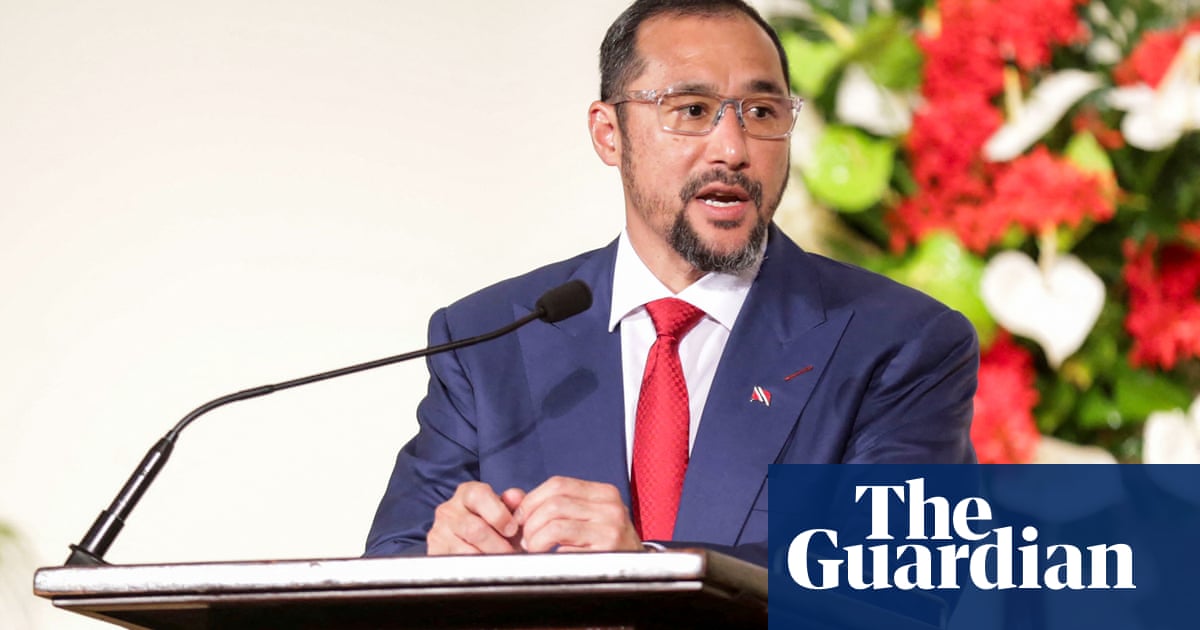Voters in the twin-island Caribbean nation ofTrinidad and Tobago(T&T) are going to the polls today in a parliamentary election described by analysts as one of the most unpredictable in decades.
Soaring crime levels,Donald Trump’strade tariffs, and the rising cost of living have dominated the race between the two main parties, the ruling People’s National Movement (PNM) and the United National Congress (UNC). Voters will choose the 41 members of the lower House of Representatives for a five-year term.
The trigger for the vote was former prime minister Keith Rowley’s unprecedented decision to stand down in March, becoming the country’s first leader to resign without losing at the polls.
Stuart Young, 50, was sworn in as prime minister, and a day later, he dissolved parliament and called the election, seeking a public mandate for his leadership.
Opposing him is Kamla Persad-Bissessar, the 73-year-old leader of the UNC, who was prime minister from 2010 to 2015. Her party has endured internal upheaval, high-profile resignations, and a string of electoral defeats, but she retains a loyal base, campaigning against the government’s record on crime and the rising cost of living.
The elections come on the heels of a three-month state of emergency, declared on 30 December after awave of bloody gang warfare. Last year, T&T, which has a population ofabout 1.5 million, recorded 624 homicides, making it one of themost violent countriesin Latin America and the Caribbean.
“Crime will be a major factor in the election because the government has been unable to take control of the situation,” Hamid Ghany, a University of the West Indies political analyst, said.
The UNC has promised a range of initiatives to tackle crime, including the creation of new ministries of defence and justice. The PNM, meanwhile, has promised to modernise governance, digitise services, and improve public safety through the creation of a ministry of implementation and efficiency.
An opinion pollcommissioned by the T&T Guardian and conducted between 10-13 April by Ghany shows UNC leading the PNM in most of Trinidad’s swing seats, while PNM retains an edge in Tobago. Among 1,650 respondents across 11 marginal constituencies in Trinidad, 45% said they would vote for the UNC if elections were held tomorrow, compared to 30% for the PNM.
The survey also revealed that 61% of Trinidadian respondents were dissatisfied with the PNM’s performance over the last decade. Young insists that the PNM’s internal tracking shows a lead in several key constituencies.
Ghany described the election as a contest between the “working class and the privileged class”. For people like maintenance worker Clinton Brewster, 35, the gravest concern is the rising cost of living, which is outpacing salaries.
“The trade unions have sided with the UNC against the government on the need to address the concerns of the working class in attempting to repair the post-COVID economy. Class concerns have cut across race and ethnic lines, which has diminished the race factor in this election,” Ghany said.
Race has historically been a fault line in local politics, with the PNM drawing support from Afro-Trinidadians and the UNC from Indo-Trinidadian communities. While both parties have repeatedly denied weaponising ethnicity, the 2025 campaign has included accusations of racial messaging in AI-generated ads and finger-pointing over class representation.
A senior member of the T&T Hindu community, Dharmacharya Pandit Rampersad Parasram, said equality and equity are “front-burner” issues. He added that while the country has had to grapple with the impact of a post-colonial legacy, “we got independence 63 years ago. So what was then was then.”
“We just have to make sure that the gains that we have made in our fight for equality, fair play and justice, that we consolidate those gains and do not compromise them in any way. Words like equality and equity must remain important in a futureTrinidad and Tobago,” he said.
Beyond these internal issues, the international context is also important, Ghany said. “This election is important in the Trump era because of the US policy towards Venezuela.”
Earlier this month, the US revoked two licenses it had granted in recent years for the development of offshore natural gas projects between Trinidad and Tobago and Venezuela, dealing a blow to the country’s economic growth projections.
“The closeness between PM Young and [Venezuela’s] Maduro’s regime will be on the Trump administration’s radar should the PNM win the election,” Ghany said. “It is quite possible that there may be a different response from the Trump administration should the UNC win the election, given the favourable disposition of Kamla Persad-Bissessar towards Trump.”
